
Aneho: Togo's Coastal Gem
Nestled along the southeastern coast of Togo, Aneho is a captivating blend of history, culture, and natural beauty. Known as Little Popo during colonial times, Aneho was once the capital of German Togoland. Today, it offers visitors a glimpse into its storied past with well-preserved colonial buildings and historical landmarks. Stroll through its charming streets and you'll find a unique mix of European and African architecture, reflecting Aneho's rich cultural heritage. The city's vibrant markets are a treasure trove of local crafts, textiles, and fresh produce, giving you a taste of the daily life of its friendly residents. Aneho's picturesque coastline is perfect for relaxation and exploration. The golden sandy beaches invite you to unwind and soak up the sun, while the coastal waters are ideal for swimming and fishing. Don't miss the opportunity to visit the serene Lake Togo, where you can take a boat ride and observe a variety of bird species in their natural habitat.
Local tips in Aneho
- Visit Aneho during the dry season (November to April) for the best weather.
- Bring cash, as many local shops and markets do not accept credit cards.
- Try the local cuisine, especially fresh seafood and traditional Togolese dishes.
- Hire a local guide to explore the historical landmarks and learn about the city's unique history.
- Respect local customs and dress modestly when visiting religious sites.
Aneho: Togo's Coastal Gem
Nestled along the southeastern coast of Togo, Aneho is a captivating blend of history, culture, and natural beauty. Known as Little Popo during colonial times, Aneho was once the capital of German Togoland. Today, it offers visitors a glimpse into its storied past with well-preserved colonial buildings and historical landmarks. Stroll through its charming streets and you'll find a unique mix of European and African architecture, reflecting Aneho's rich cultural heritage. The city's vibrant markets are a treasure trove of local crafts, textiles, and fresh produce, giving you a taste of the daily life of its friendly residents. Aneho's picturesque coastline is perfect for relaxation and exploration. The golden sandy beaches invite you to unwind and soak up the sun, while the coastal waters are ideal for swimming and fishing. Don't miss the opportunity to visit the serene Lake Togo, where you can take a boat ride and observe a variety of bird species in their natural habitat.
When is the best time to go to Aneho?
Iconic landmarks you can’t miss
Hedzranawoe Market
Dive into the vibrant Hedzranawoe Market in Lomé for an authentic local experience filled with culture, flavors, and unique crafts.
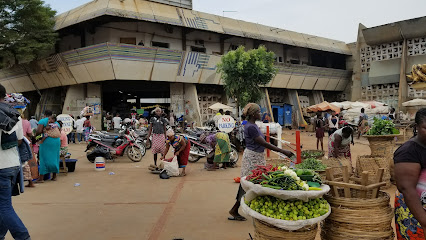
Crossroads of the Two Lions
Discover the Crossroads of the Two Lions in Lomé, a historical landmark showcasing Togolese culture and artistry amidst the vibrant city life.
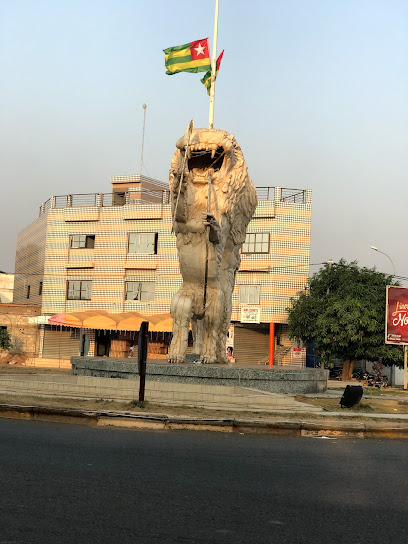
Kégué Stadium
Experience the vibrant atmosphere of Kégué Stadium in Lomé, Togo, where sports and community spirit come together in a spectacular venue.
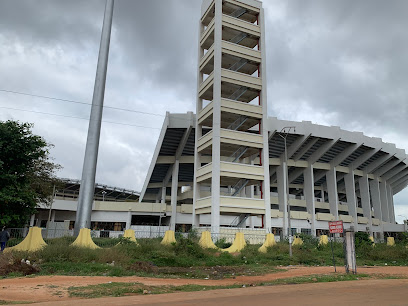
Colombe De La Paix
Discover the Colombe De La Paix in Lomé, Togo - a stunning symbol of peace and unity, perfect for cultural exploration and memorable photographs.
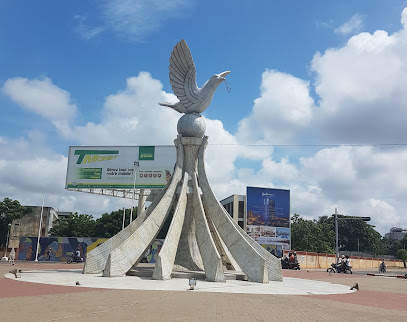
Café Boson
Discover Café Boson in Ouidah, a delightful coffee haven on Plage Benin, where the finest brews meet stunning ocean views.
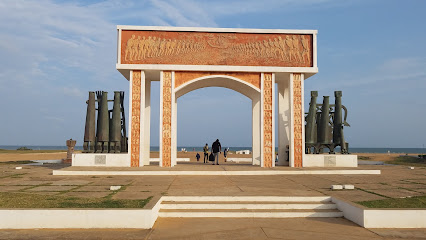
Monument de l'independance
Discover the Monument de l'Indépendance in Lomé, a powerful symbol of Togo's heritage and a testament to the nation's fight for freedom.
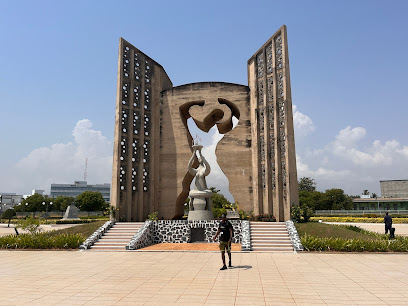
Sacred Heart Cathedral
Discover the Sacred Heart Cathedral in Lomé, an architectural marvel that intertwines faith, culture, and history in the heart of Togo.
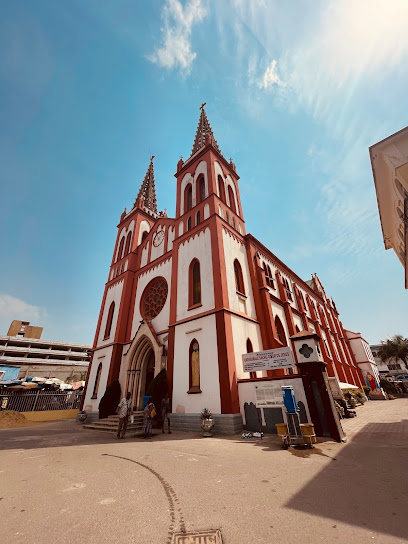
Palais de Lomé
Explore the historical grandeur of Palais de Lomé, a cultural treasure in Togo showcasing stunning architecture and rich heritage.
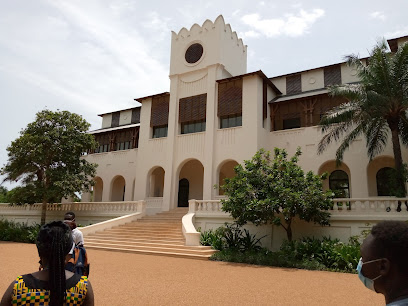
La route des vins
Discover the charm of La Route des Vins in Lomé, where exquisite wines meet culinary delights in a cozy and inviting atmosphere.
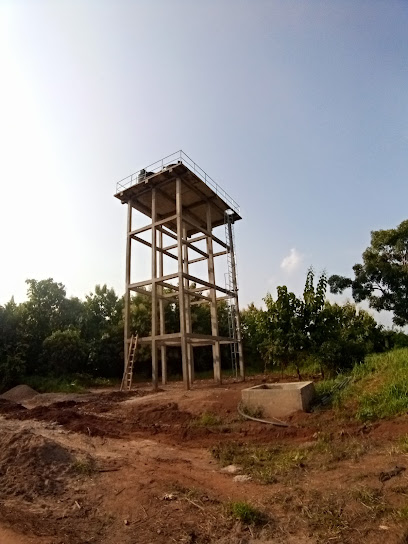
Fauna Cultura
Discover the enchanting Fauna Cultura in Lomé, a captivating zoo showcasing diverse wildlife and promoting conservation efforts for an unforgettable experience.
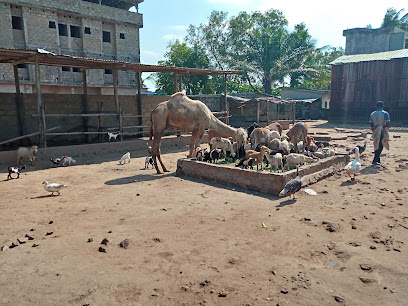
Cascade de Kpimé
Experience the breathtaking beauty of Cascade de Kpimé, a natural wonder in Togo surrounded by lush landscapes and vibrant wildlife.
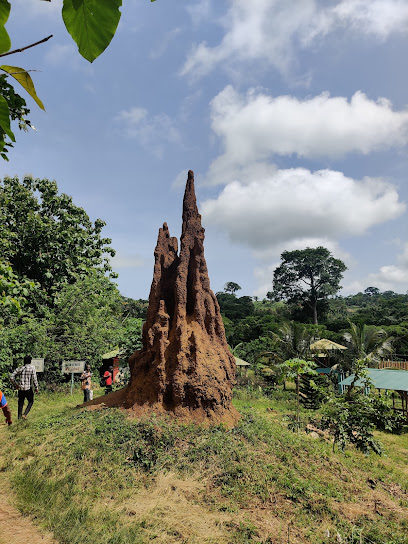
Marché Adidogome Assiyéyé
Discover the heart of Lomé at Marché Adidogome Assiyéyé, where vibrant culture meets diverse local goods and flavors in a lively market atmosphere.

Maison des Esclaves
Explore the poignant history of the transatlantic slave trade at the Maison des Esclaves in Agbodrafo, a museum that honors resilience and heritage.
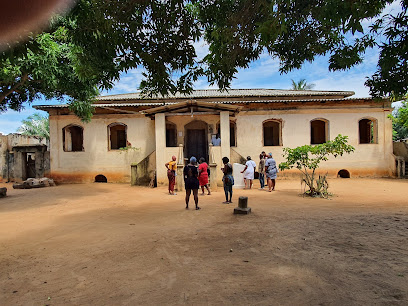
Plage de Lomé
Discover the sun-kissed shores and vibrant local culture at Plage de Lomé, where relaxation meets adventure along Togo's stunning coastline.
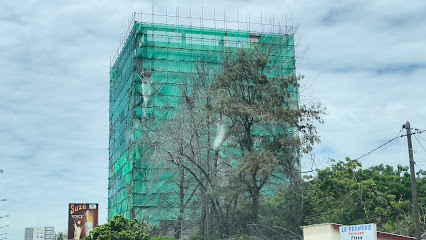
Le Monument - Baguida
Discover the historical significance of Le Monument - Baguida in Lomé, a captivating landmark reflecting Togo's rich culture and history.
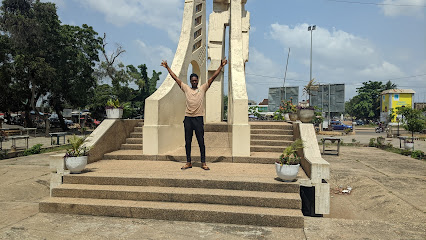
Unmissable attractions to see
Akodessewa Fetish Market
Discover the enchanting Akodessewa Fetish Market in Lomé, a cultural treasure trove of traditional crafts and spirituality.
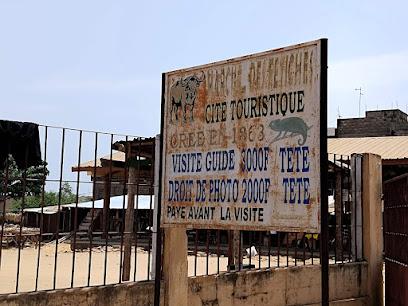
Akodessewa Fetish Market
Explore the fascinating Akodessewa Fetish Market in Lomé, where vibrant culture meets unique voodoo traditions and artisanal craftsmanship.
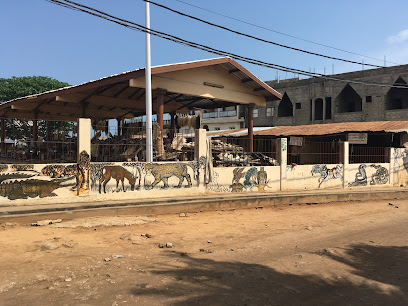
Fil'o Parc
Experience fun and excitement at Fil'o Parc, Agouenyive's premier amusement center for family-friendly adventures and unforgettable memories.
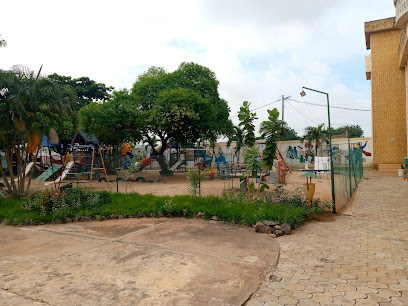
Funny Park
Experience laughter and excitement at Funny Park, Lomé's premier amusement park with thrilling rides and family-friendly attractions.
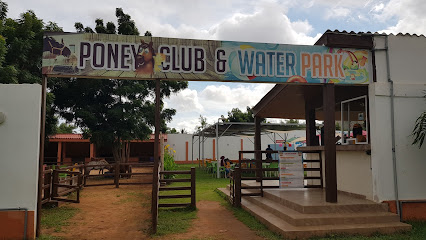
TATA PARK
Experience the thrill of adventure and fun at TATA PARK, Lomé's premier amusement park offering excitement for all ages.
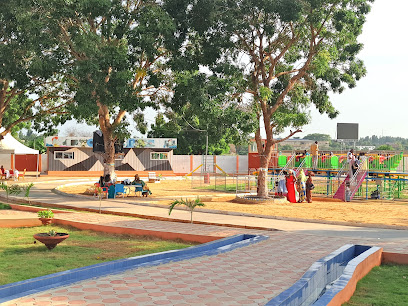
Fauna Cultura
Explore the vibrant Fauna Cultura Zoo in Lomé, showcasing diverse wildlife and promoting conservation through engaging exhibits and educational programs.
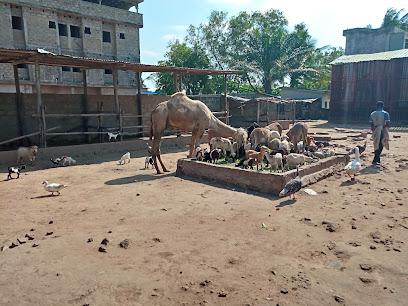
oboden navigation equipment
Explore the historical significance of the Oboden Navigation Equipment in Lomé, where maritime heritage meets cultural vibrancy.
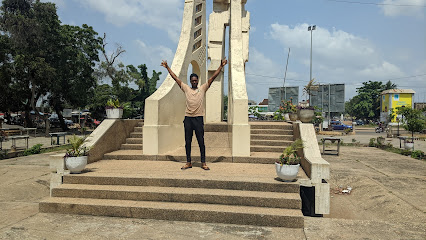
AgouaLand
Discover AgouaLand, a captivating tourist attraction in Benin blending amusement park thrills, historical landmarks, and exotic wildlife for all ages.
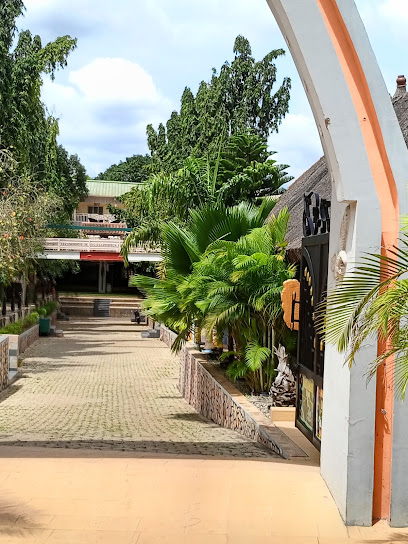
International Museum Of The Gulf Of Guinea
Uncover the rich cultural heritage of Togo at the International Museum Of The Gulf Of Guinea in Lomé, featuring diverse artifacts and engaging exhibits.
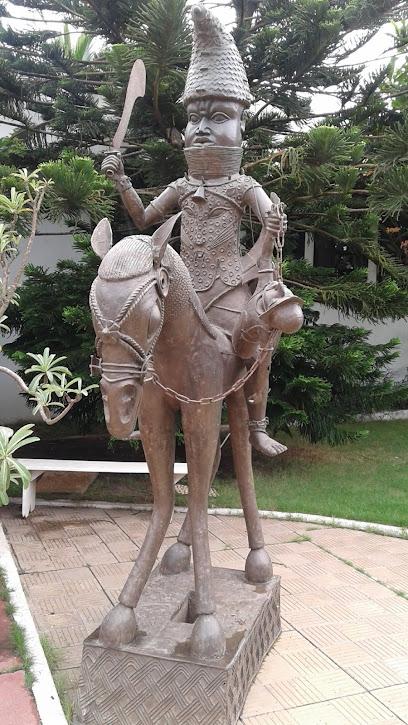
Cascade de Womé
Experience the breathtaking beauty of Cascade de Womé, a serene waterfall surrounded by lush nature in Kpalimé, Togo.
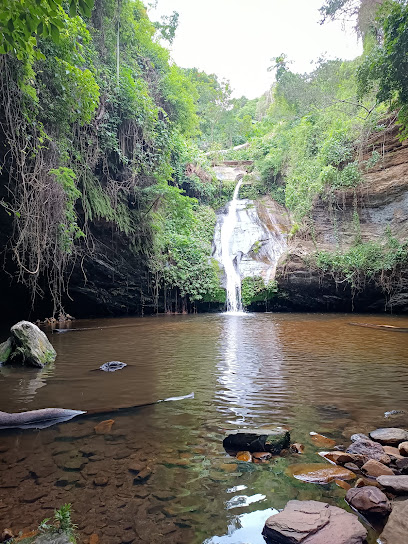
cascade de Yikpa
Explore the enchanting Cascade de Yikpa, a stunning waterfall in Likpe Bakwa, Ghana, perfect for nature lovers and adventure seekers.
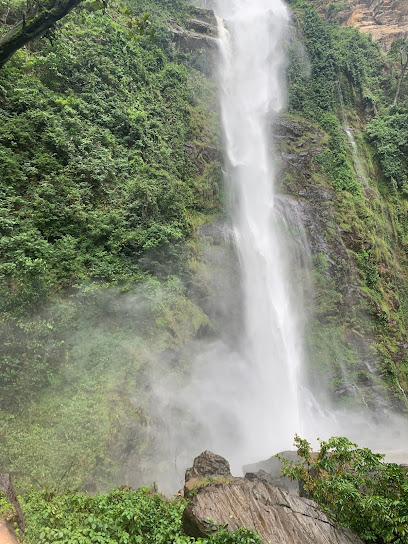
Kouma konda
Explore Kouma Konda, a stunning attraction in Kpalime, Togo, known for its breathtaking landscapes and rich cultural experiences.
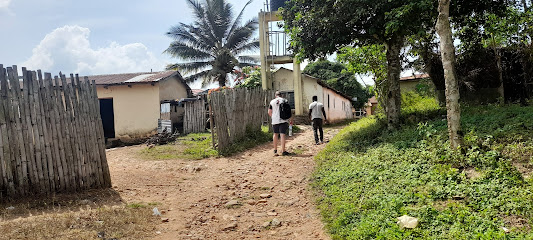
Memorial de Zoungbodji
Explore the Memorial de Zoungbodji in Ouidah, Benin, for a journey through history, culture, and resilience in a serene and inspiring setting.
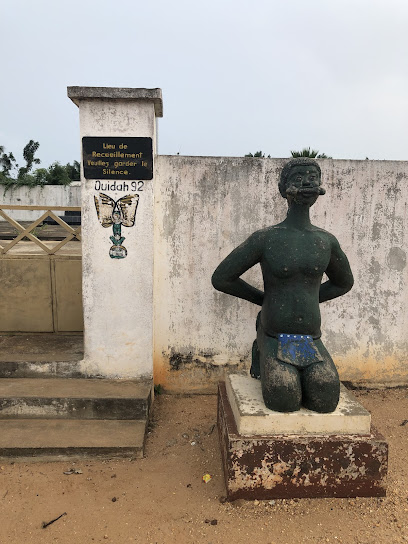
Denu Beach
Explore the serene beauty and vibrant culture of Denu Beach, a perfect escape on Ghana's Atlantic coast offering relaxation and adventure.
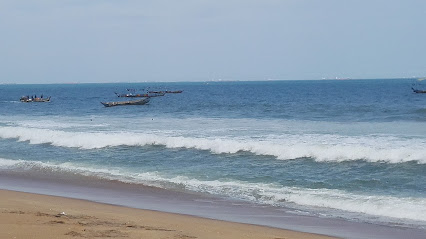
Tata parc
Explore Tata Parc in Lomé: A serene park offering lush greenery, local culture, and a perfect escape for relaxation and rejuvenation.
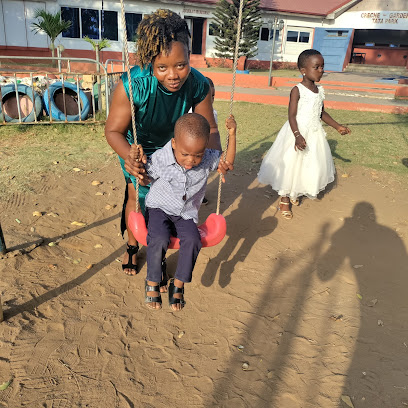
Essential places to dine
Miadjoe
Discover authentic Togolese flavors at Miadjoe, where delightful cuisine meets stunning views in the heart of Aného.
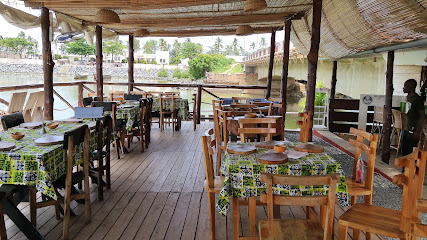
Bar-restaurant Mon Village (chez Léo) nouvelle gérance
Savor exquisite local and international cuisine at Bar-Restaurant Mon Village in Agbodrafo – a culinary haven for every traveler.
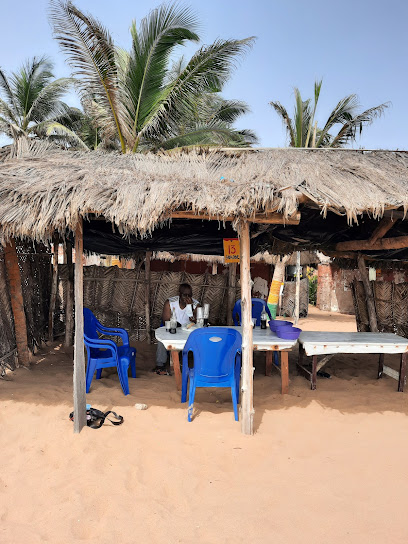
La Table d’Ahoé
Discover authentic Togolese barbecue at La Table d’Ahoé in Lomé - where every bite tells a story.
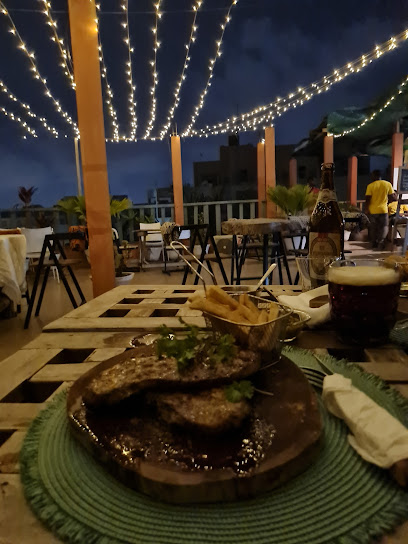
RO-DEO HOME BOX
Experience authentic Togolese cuisine at RO-DEO HOME BOX, where every dish tells a story of rich African heritage.
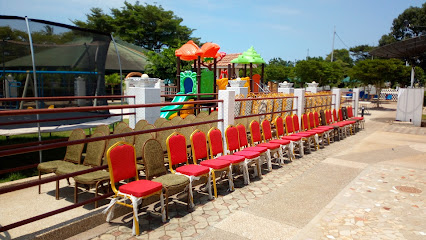
Right Eats
Experience authentic Togolese cuisine at Right Eats – a must-visit restaurant in Lomé offering diverse flavors in a welcoming atmosphere.
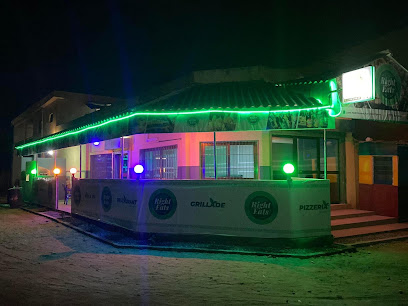
Hôtel Restaurant Oasis
Experience authentic Togolese cuisine at Hôtel Restaurant Oasis in Aneho – where flavor meets culture.
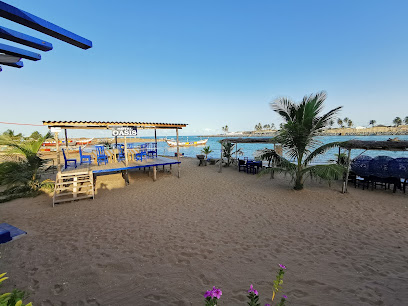
La Maison d'Ahoé
Experience authentic Togolese barbecue at La Maison d'Ahoé in Lomé - where flavor meets tradition.
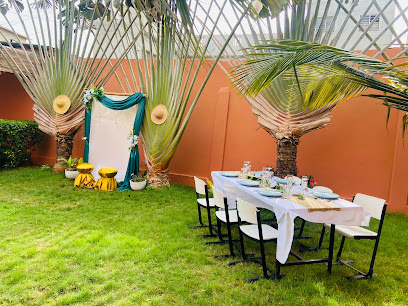
Popote
Discover authentic Togolese flavors at Popote in Hahatoe - where culinary tradition meets warm hospitality.
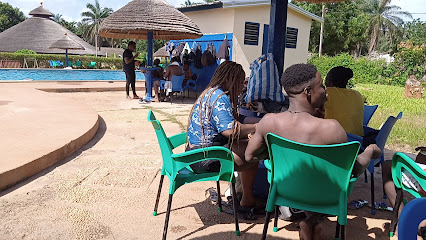
Bonici Africa, Aného
Discover authentic Togolese flavors at Bonici Africa in Aného – where culinary tradition meets warm hospitality.
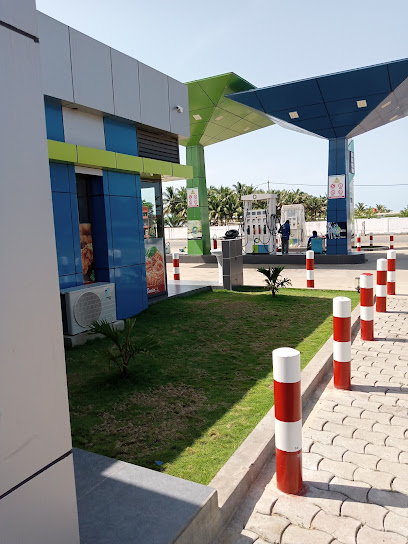
Restaurant Bar La Couronne
Experience authentic Togolese cuisine at Restaurant Bar La Couronne in Aneho - a must-visit for food lovers seeking local flavors.
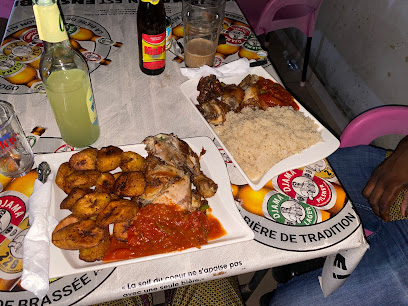
Maquis du protectorat
Experience authentic Togolese flavors at Maquis du Protectorat near Cathédrale Notre Dame de Togoville.
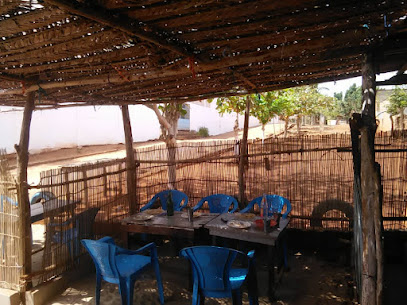
Eclipsial Fast Food Bar
Discover delicious fast food delights at Eclipsial Fast Food Bar along Route International N2 - perfect for tourists seeking quick bites.
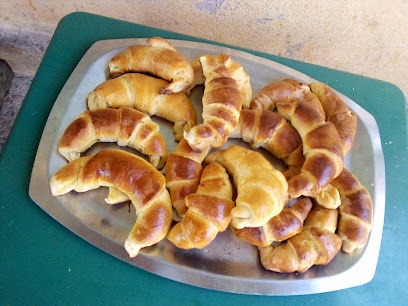
Bar Restaurant Moins Cher
Discover the flavors of Africa at Bar Restaurant Moins Cher in Aneho, where authentic dishes meet warm hospitality.
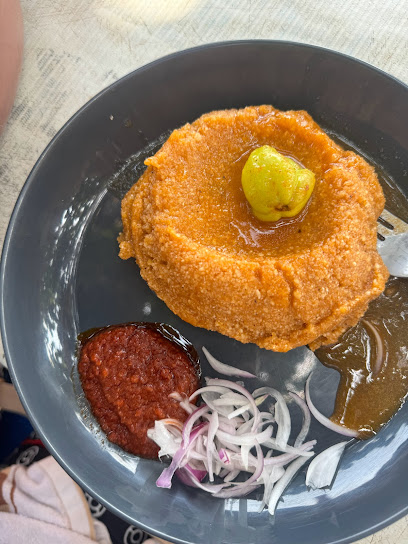
TOP ONE
Experience authentic Togolese cuisine at TOP ONE in Agbodrafo – where flavor meets culture in every bite.
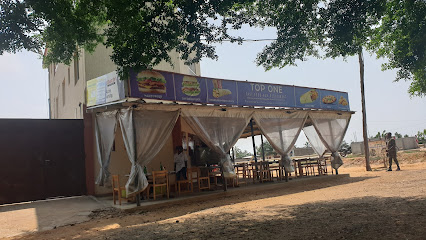
ECLIPSIAL BEACH BAR & LOUNGE
Discover ECLIPSIAL BEACH BAR & LOUNGE: A vibrant buffet restaurant in Agbodrafo offering stunning ocean views and delectable local cuisine.
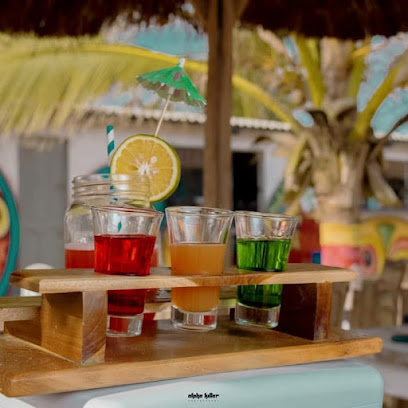
Markets, malls and hidden boutiques
Marchè
Discover the vibrant Marchè in Aneho, where local culture, delicious food, and unique crafts come together for an unforgettable experience.

Offrir du Bonheur Lome
Explore Offrir du Bonheur Lome for unique Togolese gifts and souvenirs, celebrating local craftsmanship in the heart of Lomé.
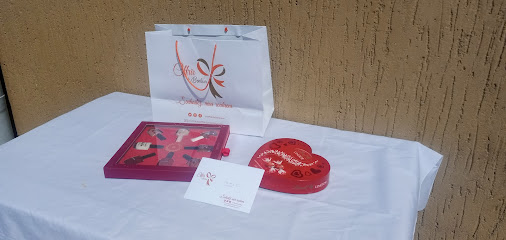
Aklala Batik Du Togo à Lomé
Discover vibrant Togolese batik and unique handcrafted souvenirs at Aklala Batik Du Togo in Lomé, a must-visit gift shop for cultural treasures.
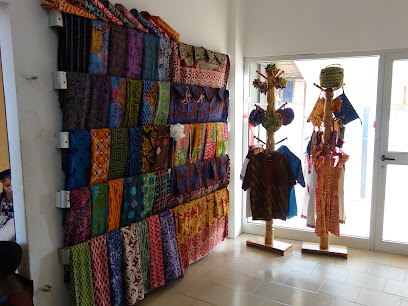
The Korner Shop lomé
Discover the essence of Togo at The Korner Shop, featuring authentic handicrafts and unique gifts that celebrate local artistry.
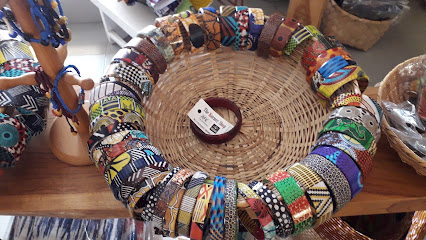
togoshop
Explore Togoshop in Lomé for a unique shopping experience with exquisite handbags, trendy clothing, and electronics in a vibrant atmosphere.
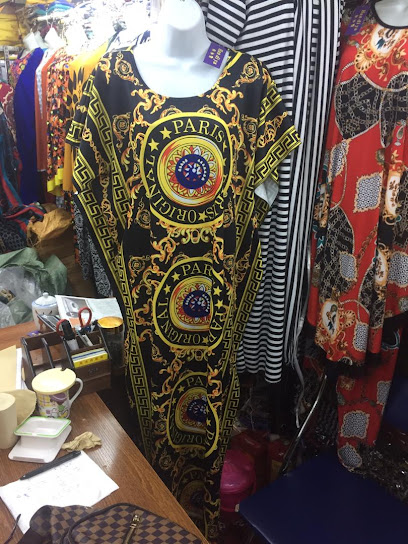
Boutique TOGO SOUVENIRS
Explore the vibrant culture of Togo at Boutique TOGO SOUVENIRS, your go-to destination for authentic gifts and local crafts.
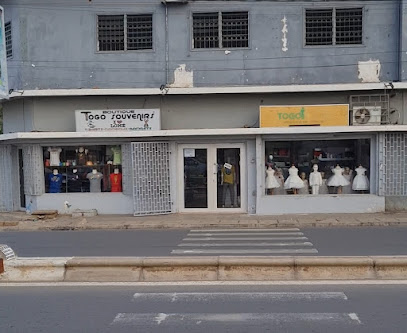
Boutique Mablé Agbodan
Discover unique Togolese fashion at Boutique Mablé Agbodan, a premier clothing store in Lomé offering stylish and authentic apparel.
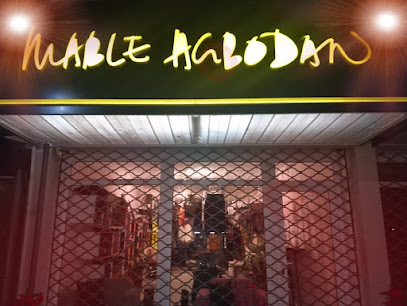
Ets AKOETE
Explore Ets AKOETE, the vibrant shopping mall in Anfoin, Togo, offering unique local products and delicious cuisine.
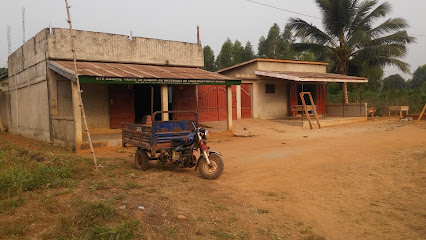
OTED HARBOR
Explore OTED HARBOR in Kpogan, Lomé for fresh fish, unique local treasures, and a taste of Togolese culture in a vibrant shopping environment.
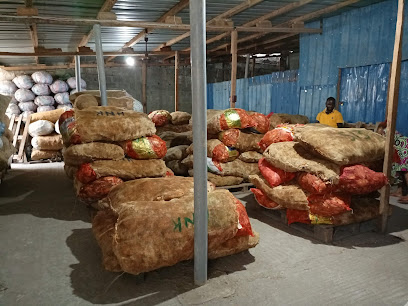
Boutique Adjoasika Na Mawu
Explore the vibrant Boutique Adjoasika Na Mawu in Lomé for unique gifts, local handicrafts, and a taste of Togolese culture.
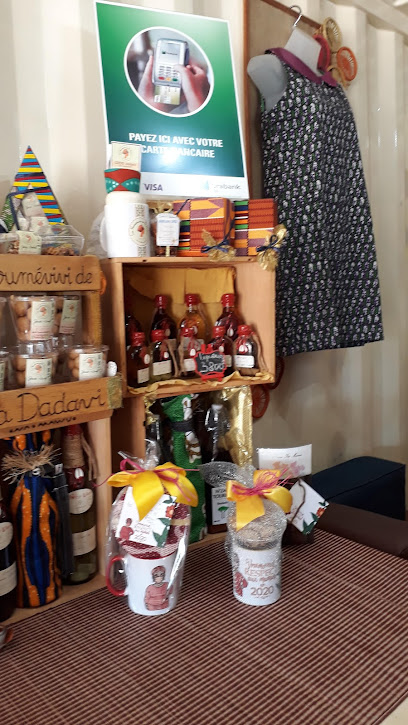
BENIMEX
Explore Benimex Shopping Mall in Lomé for a vibrant mix of local and international shopping and dining experiences.

Global Shop annexe
Uncover the latest fashion trends and local designs at Global Shop Annexe, your go-to clothing store in Aneho.

Pharmacie Woézon
Discover Pharmacie Woézon in Aneho for essential health products and expert advice, ensuring a worry-free travel experience.

Nûnânâ, Gifts from Togo
Discover the essence of Togo at Nûnânâ, a delightful gift shop in Lomé offering handcrafted treasures reflective of local culture.
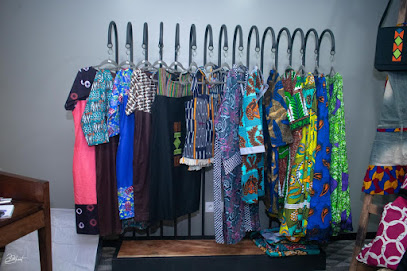
Zen Le Rocher
Explore Zen Le Rocher Shopping Mall in Aneho, Togo, where local culture meets modern shopping and dining experiences.

Essential bars & hidden hideouts
Miadjoe
Experience the vibrant flavors of Togolese cuisine at Miadjoe, Aného's beloved dining destination, perfect for food-loving travelers.
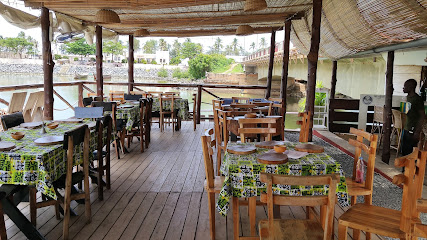
La Chunga bar restaurant
Discover the lively ambiance and delicious cuisine at La Chunga Bar Restaurant, a top destination for food lovers in Lomé, Togo.
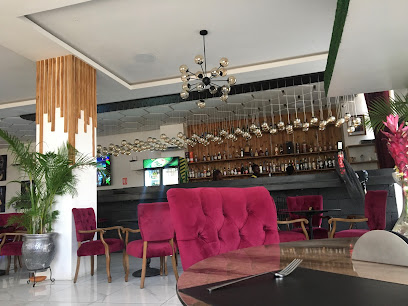
Le MYTHE LOUNGE
Discover the vibrant nightlife of Lomé at Le MYTHE LOUNGE, where good music and great vibes come together for an unforgettable experience.
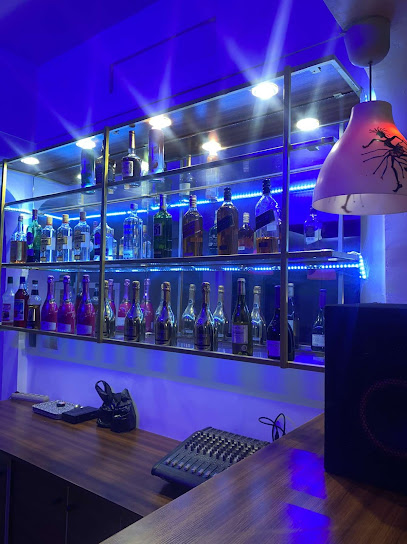
Hôtel Restaurant Oasis
Experience the flavors of Togo at Hôtel Restaurant Oasis in Aneho, where local cuisine meets warm hospitality in a charming atmosphere.
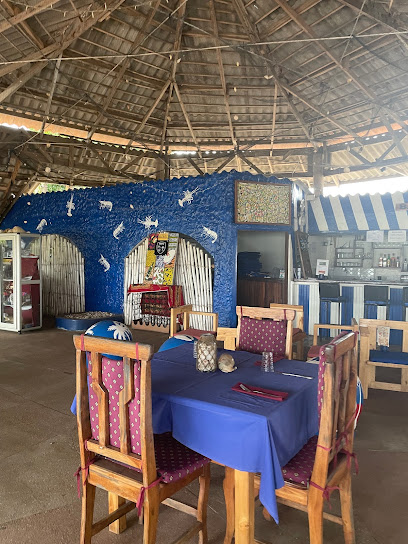
DEGUETERIE A TOUTE HEURE
Experience the vibrant atmosphere and diverse beverage selection at Degueterie a Toute Heure in Lomé, Togo's charming bar for travelers.
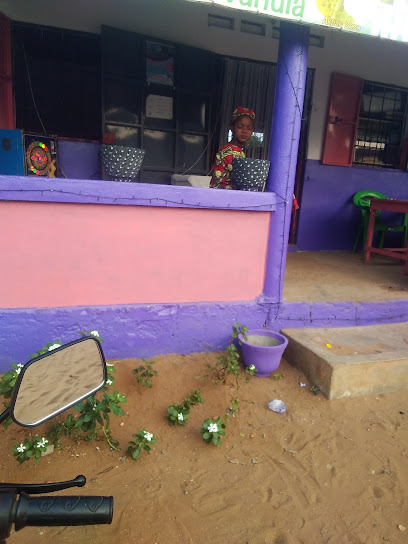
Ôdasse Bar_Maquis_Traiteur
Experience the lively vibe of Ôdasse Bar_Maquis_Traiteur in Lomé, where delicious cuisine meets refreshing drinks in a vibrant atmosphere.
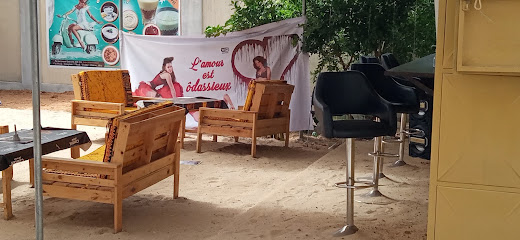
Restaurant Bar La Couronne
Experience the authentic flavors of Aneho at Restaurant Bar La Couronne, where local cuisine meets vibrant atmosphere.
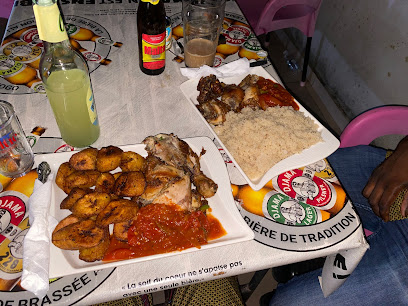
Guindoua be rooftop
Discover the vibrant nightlife at Guindoua Be Rooftop in Aneho, offering breathtaking views, delicious drinks, and a lively atmosphere.
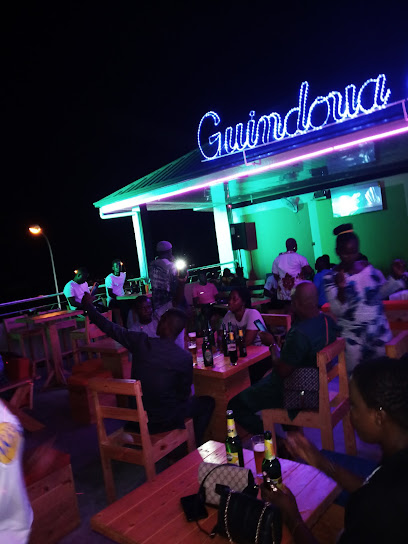
Bar Restaurant Moins Cher
Savor the essence of Africa at Bar Restaurant Moins Cher in Aneho, where authentic flavors meet a welcoming atmosphere.
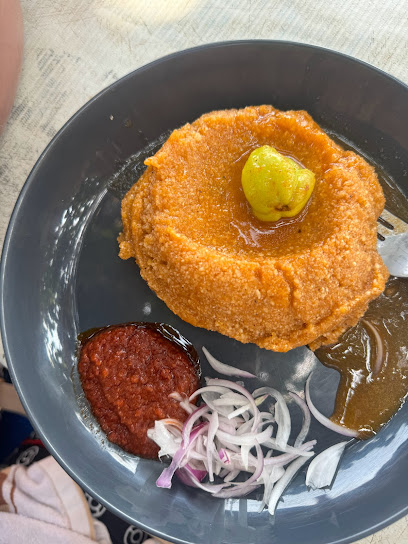
Auberge-Bar La Cigogne Bleue
Discover the serene charm of Auberge-Bar La Cigogne Bleue in Aneho, a perfect blend of comfort, culture, and local cuisine.
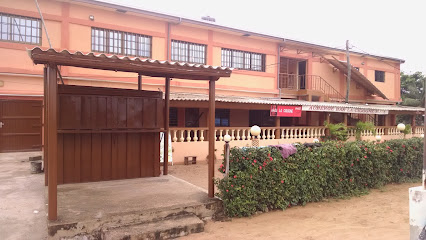
Bar-Restaurant Auberge EKO
Discover the lively spirit of Bar-Restaurant Auberge EKO in N2, where affordable drinks and a welcoming atmosphere await every traveler.
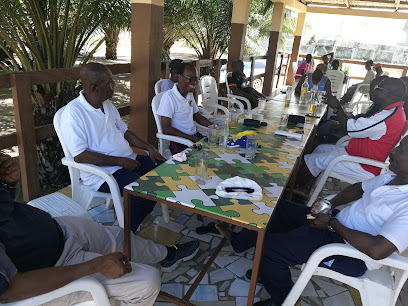
Bar Restaurant Ma Cabane
Experience the vibrant atmosphere and delicious local flavors at Bar Restaurant Ma Cabane, a must-visit beer hall in the heart of Lomé, Togo.
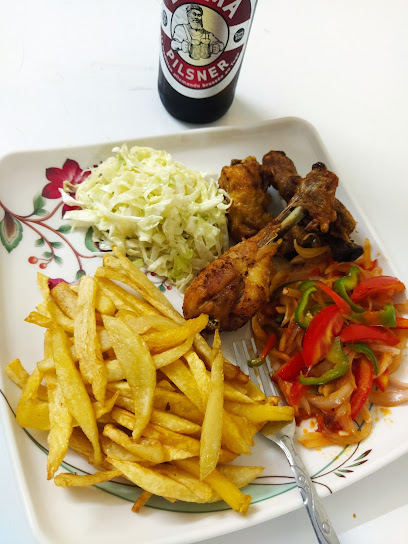
Restaurant-Bar LE MONT THABOR
Experience authentic Togolese cuisine and vibrant ambiance at Restaurant-Bar LE MONT THABOR in Aneho, a delightful culinary destination for all tourists.
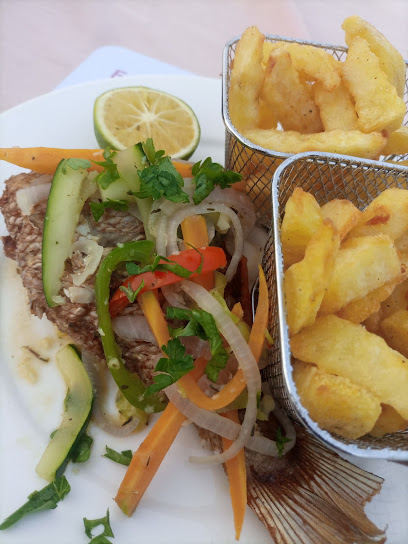
A La Cave
Experience the lively atmosphere of A La Cave, a premier bar in Lomé, Togo, serving a variety of local and international drinks.
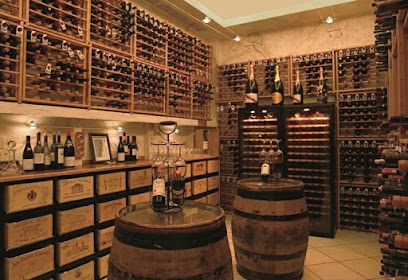
Local Phrases
-
- HelloAkpe
[ah-kpeh] - GoodbyeAkpe
[ah-kpeh] - YesAwo
[ah-woh] - NoAyi
[ah-yee] - Please/You're welcomeAyi
[ah-yee] - Thank youAkpe
[ah-kpeh] - Excuse me/SorryKu
[koo] - How are you?Ako se?
[ah-koh seh] - Fine. And you?Yeh. E se?
[yeh. eh seh] - Do you speak English?O se gbe English?
[oh seh gbeh English] - I don't understandMi nɔvi wɔe
[mee noh-vee woh-eh]
- HelloAkpe
-
- I'd like to see the menu, pleaseMi ɖo xɔ menu, ɖeka
[mee doh kho menu theh-kah] - I don't eat meatMi wɔ ɖo agbli
[mee woh doh ah-gblee] - Cheers!Ayo!
[ah-yoh] - I would like to pay, pleaseMi ɖo xɔ xɔ esia, ɖeka
[mee doh kho kho eh-syah theh-kah]
- I'd like to see the menu, pleaseMi ɖo xɔ menu, ɖeka
-
- Help!Mawu
[mah-woo] - Go away!Vɔ xɔ
[voh kho] - Call the Police!Vɔ xɔ Polisii!
[voh kho poh-lee-see] - Call a doctor!Vɔ xɔ dokita!
[voh kho doh-kee-tah] - I'm lostMi tsoe
[mee tsoh-eh] - I'm illMi ɖe
[mee theh]
- Help!Mawu
-
- I'd like to buy...Mi ɖo xɔ...
[mee doh kho...] - I'm just lookingMi ɖo ɖe ɖe
[mee doh theh theh] - How much is it?E ɖe ena gbɔmɛ?
[eh theh eh-nah gboh-meh] - That's too expensiveE si sɔsɔ ɖe ɖe
[eh see soh-soh theh theh] - Can you lower the price?O ɖe ɖe ɖe
[oh theh theh theh]
- I'd like to buy...Mi ɖo xɔ...
-
- What time is it?E ɖe ɖeka?
[eh theh theh-kah] - It's one o'clockƉe ena ɖe
[theh eh-nah theh] - Half past (10)Xɔ xɔ (10)
[kho kho (10)] - MorningƉeka
[theh-kah] - Afternoonɖe ɖe ɖeka
[theh theh theh-kah] - Eveningalɔ
[ah-loh] - YesterdayDziɖɔ
[zee-zoh] - TodayDzo
[zoh] - TomorrowAɖa
[ah-dah] - 1Yi
[yee] - 2Eɖe
[eh-theh] - 3Eha
[eh-hah] - 4Ena
[eh-nah] - 5Evi
[eh-vee] - 6Eɖo
[eh-theh-oh] - 7Ese
[eh-seh] - 8Eva
[eh-vah] - 9Nawo
[nah-woh] - 10Kɔme
[koh-meh]
- What time is it?E ɖe ɖeka?
-
- Where's a/the...?Ɖe ena...
[theh eh-nah...] - What's the address?E ɖe ɖe ɖe?
[eh theh theh theh] - Can you show me (on the map)?O ɖe ɖe mi (ɖe lɔgɔ)?
[oh theh theh mee theh loh-goh] - When's the next (bus)?E ɖe ɖe xɔ xɔ (bus)?
[eh theh theh kho kho (bus)] - A ticket (to ....)Xɔ xɔ (to ....)
[kho kho (to ....)]
- Where's a/the...?Ɖe ena...
History of Aneho
-
Aneho, historically known as Little Popo, was founded in the late 17th century by the Guin people. It served as a refuge for the Guin who fled from wars in the east. Situated on the Atlantic coast, it quickly became a significant trading post.
-
Aneho became a focal point during the colonial era, first falling under German control in the late 19th century as part of Togoland. The town's strategic location made it a valuable hub for trade and administration.
-
Aneho played a crucial role in the transatlantic slave trade. The town's coastal location facilitated the export of enslaved people to the Americas. The remnants of this dark period in history are still visible in some historical sites and local oral traditions.
-
Aneho is known for its diverse religious landscape. It is a center for Vodun (Voodoo) practices, and also home to one of the oldest Catholic missions in Togo, established by French missionaries in the 19th century. The coexistence of these different religious traditions highlights the town's cultural diversity.
-
After World War I, Togoland was divided between the British and the French. Aneho came under French control and continued to serve as an important administrative and commercial center. The French influence is still evident in the town's architecture and educational institutions.
-
Togo gained independence from France in 1960, and Aneho has since evolved into a peaceful town that blends historical significance with modernity. It remains an important cultural and touristic destination, known for its vibrant festivals, traditional music, and dances.
Aneho Essentials
-
Aneho is located in the Maritime Region of Togo, near the border with Benin. The nearest international airport is Lomé-Tokoin International Airport in Lomé, about 50 kilometers away. From Lomé, you can take a shared taxi or hire a private taxi to Aneho, which usually takes around 1 to 1.5 hours by road. Public minibuses (known as 'bush taxis') also operate between Lomé and Aneho and are a more budget-friendly option.
-
Within Aneho, the primary modes of transportation are taxis and motorcycle taxis (known locally as 'zemidjans'). Both are readily available and relatively inexpensive. For short distances, walking is also a viable option as the town is quite compact. Renting a car can be convenient for exploring surrounding areas, but it's advisable to hire a local driver familiar with the roads.
-
The official currency in Togo is the West African CFA franc (XOF). Credit cards are not widely accepted in Aneho, so it is essential to carry cash. ATMs are available but can be sparse, so withdrawing sufficient cash in Lomé before traveling to Aneho is advisable. Ensure you have smaller denominations for easier transactions, especially in local markets and smaller establishments.
-
Aneho is generally safe for tourists, but like any destination, standard precautions should be taken. Avoid walking alone at night in unfamiliar areas and keep an eye on your belongings in crowded places. While there are no specific high-crime neighborhoods targeting tourists, petty theft can occur. Always be vigilant and aware of your surroundings.
-
In case of emergency, dial 117 for the police and 118 for the fire department. Local police stations and medical facilities are available in Aneho. It is recommended to have travel insurance that covers medical emergencies. For minor health issues, there are pharmacies where you can purchase over-the-counter medications. The nearest major hospital is in Lomé, so for serious medical emergencies, transportation to Lomé may be necessary.
-
Fashion: Do dress modestly, especially when visiting religious sites. Avoid wearing revealing clothing. Religion: Do respect local customs and traditions. Remove your shoes when entering homes and places of worship. Public Transport: Do be respectful and give up your seat to elderly passengers. Don't eat or drink on public transport. Greetings: Do greet people with a handshake. A slight bow or nod of the head is also a sign of respect. Eating & Drinking: Do try local dishes and accept food offerings graciously. Don't refuse hospitality, as it is considered impolite.
-
To experience Aneho like a local, visit the local markets where you can buy fresh produce and traditional goods. Engage with locals, who are often friendly and willing to share stories about the town's history and culture. Don't miss visiting the historic colonial buildings and the Aneho Lagoon, which is a great spot for bird-watching. For a unique experience, attend a traditional Ewe festival if your visit coincides with one.
Trending Landmark in Aneho
Nearby Cities to Aneho
-
Things To Do in Lomé
-
Things To Do in Lokossa
-
Things To Do in Ouidah
-
Things To Do in Notse
-
Things To Do in Cotonou
-
Things To Do in Porto-Novo
-
Things To Do in Ho
-
Things To Do in Kpalimé
-
Things To Do in Atakpamé
-
Things To Do in Lagos
-
Things To Do in Koforidua
-
Things To Do in Accra
-
Things To Do in Abeokuta
-
Things To Do in Ibadan
-
Things To Do in Cape Coast






